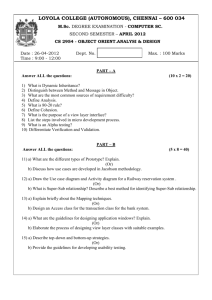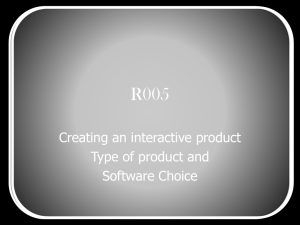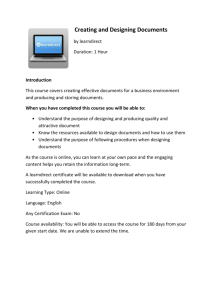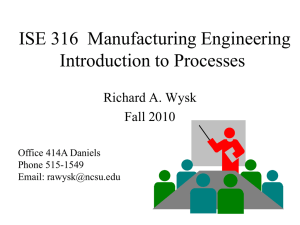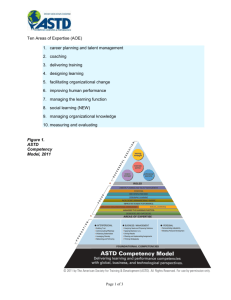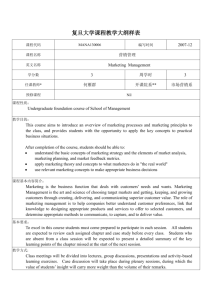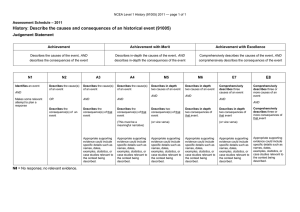Lession planing
advertisement
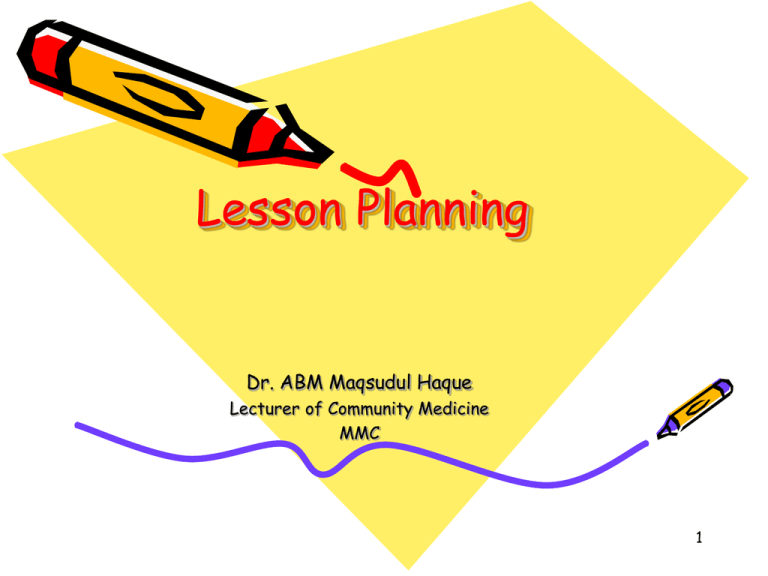
Lesson Planning Dr. ABM Maqsudul Haque Lecturer of Community Medicine MMC 1 Objective • At the end of the session we will be able to – – – – – – Define lesson plan Describe the contents of lesson plan Describe the principles designing a lesson plan Find out the advantages of lesson plan Outline of lesson planning process Prepare a lesson plan 2 Educational circle What will the student be able to do at the end of the session? Do the objectives or methods need to be changed Objective Evaluate Which learning experience will help them to do it Method Assessment How will we assess whether he has mastered it 3 What is a lesson ? • Things to be learned by the pupil • Amount of teaching given at one time within the time assigned to it • Systematic instruction 4 What is a plan? • Formulated or organized way by which things to be done • A blue print for taking action • A way of proceeding –relative position of points of thing to be done 5 What is a Lesson Plan? • The process of logically organizing the teaching activities for a course or program • A guide for teacher which helps to cover topics comprehensively with proper sequence of points and without missing any things 6 What is the need of a Lesson Plan ? • Lesson will be well organized without missing anything • The whole topic can be covered comprehensively within the given time with proper sequence of points and examples 7 What is the need of a Lesson Plan ? …. • Teaching program can be conducted in a relevant way • All points of the lesson will get proper importance • Teaching and learning will be efficient and effective 8 Principles of designing a Lesson Plan • Gaining attention • Informing the learner of the objectives • Stimulating recall of the prerequisite • Presenting the stimulus materials • Providing learning guidance 9 Principles of designing a Lesson Plan……. • Eliciting the performance • Provide feedback • Assessing performance • Enhancing retention and transfer 10 Contents of a Lesson Plan • Topic • Place, date & duration • Learning objectives • List of contents and its organization • Methods of instruction • Media to be used • Assessment • Evaluation • Review • References Note: All the components are interrelated 11 Useful guides considered for Lesson Plan • Student should be provided opportunities – to be an active rather than a passive learner – for understanding the logic underlying the teaching activities – to learn through a variety of educational resources including models – for practice knowledge & skill – For feedback 12 Outline of lesson planning process 1. • • • • Review the context of the lesson Time Space Resources Students 2. Define the objectives e.g. ARI 3. Plan the introduction • • Story Emphasis etc 13 Outline of the lesson planning process… 4. Plan the learning strategies • Analyze the skill component of the objective • Select a suitable teaching strategy • Think of resources • Divide the activities within and outside the lesson period • Write out the lesson procedures sequence 5. Plan the summary – Ask, review the main points, a handout 14 Outline of the lesson planning process… 5. Plan the follow up • Handout • References or manual • Project work / home work • Field work 6. Plan the assessment – Observation of skill – MCQ – Project 15 A model outline of the lesson plan (Malaria) Task Time of lesson Objective – students will be able to describe the life cycle of the malarial parasite 1 hour Introduction•Story •Previous knowledge •Emphasis – worldwide death per year & BD 05 min Content Life cycle in general Teacher activities 10 min Student activity Student read hand out Stages in details Show OHP / Poster etc Explain the stages Ask students to draw 30 min Students draw Summary Shows OHP again and ask to write down names as they appear 10 min Students write names Assessment Collects the papers 05 min Follow up Arrange microscopes for demonstration of MPs Show diagram comment 16
